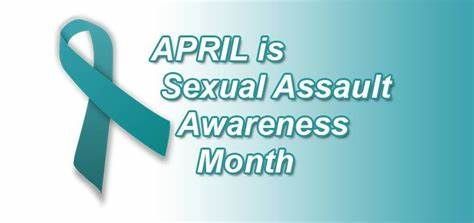Winter Turns into Spring - The Blog



A Dangerous Idea: "Bury bad thoughts to boost mental health."

An article caught my eye, the other week, from The German Press Agency (GPA)," one of the world’s leading independent news agencies." The headline reads: "Bury bad thoughts to boost mental health, Cambridge team suggests" Experts in trauma informed and compassion based therapy models, encourage us to do the opposite.
The article goes on as follow: "People who carry negative thoughts and experiences are sometimes better off suppressing them rather than opening up, going by tests done by University of Cambridge scientists.
The team said their work could turn out to be a refutation of the "commonly-held belief" that brushing things under the carpet and moving on "is bad for our mental health." This research included 120 people from different areas and background. It further says that, individuals who participated still felt much better, a few months later.
First of all, there aren't any "bad" thoughts. But, there are painful ones. There are inner parts of us whose suffering shows up in our thoughts, emotions and our actions. As human beings it is natural to try and avoid painful feelings and emotions. We also need an amount of denial to survive, to a certain point but, total oblivion isn't healthy.
Unfortunately, the advice to distract ourselves from inner turmoil, in New Age circles, religious groups and , in some therapeutic settings, we are bombarded with tips to avoid, to reject. to minimised emotional distress and deep seated trauma. Below are some of the most popular platitudes victims and survivors of childhood trauma hear most of the time.
- "Did you try and read a book? Take a bath? Going for a walk?"
- "Be grateful"
- "Happiness is a choice!"
- "It is all in the past. Leave it there."
- "Think positive."
- "Reject the negativity."
"Renowned experts in trauma informed and compassionate therapy models, such as Dr Pete Walker, Dr Chris Germer, Dr Kristin Neff and Dr Richard Schwartz, all agree: the only way to happiness and fulfilment starts by mindfully become aware of our emotional pain, then we strive to make space for it, acknowledging it and accepting it."
What we ignore, shut out of our minds, will always bubble up to the surface, sooner or later, in ways that could be hurtful for ourselves and others. It will show as impulsive behaviour and thoughts. For instance, in 2014-2015, I was attending group and individual Mentalisation Based Therapy (MBT). In essence, MBT was to help us (6 people suffering with BPD) changing our (disordered) thoughts and behaviour patterns. None of the therapists there wanted to discuss histories of child abuse or child neglect. The main message was: "Forget about the past. Get on with it!!" This was very damaging to me. It was insinuated, I choose to live in the past and to experience flashbacks.
Renowned experts in trauma informed and compassionate therapies models, such as Dr Pete Walker, Dr Chris Germer, Dr Kristin Neff and Dr Richard Schwartz, all agree: the only way to happiness and fulfilment starts by mindfully become aware of our emotional pain, then we strive to make space for it, acknowledging it and accepting it. As follow:
One way to practice mindful self-compassion is through the S.A.F.E.
- Soften: Ease into the emotion. Take a deep breath and recognize its presence. What emotion are you feeling? Where is its origin?
- Allow: Give the emotion permission to exist as it is. Inhale and exhale, acknowledging the emotion without resistance or judgment.
- Feel: Attend to the sensations in your body that accompany the emotion. Where do you feel it? What does it feel like?
- Embrace: Embrace yourself with compassion. Place your hand over your heart or give yourself a hug. Say kind words to yourself such as “May I be kind to myself” or “May I be patient with myself”.
"On a deeper level, an inner part of me (a very young part of me) felt so rejected, so scared, so unwanted (and she really was)she didn't want to be alive. She didn't see the point of her own existence."
Another example from my own experience: for years, I tried to be positive, cheerful and grateful. I tried to forget, tried to put it all behind, I choose happiness so, why, wasn't I happy? I just thought I was doing something wrong. Maybe I was damaged, never able to recover. In 2021, I felt suicidal most of the year. With the support of a caring and respectful therapist, I recognised my suicidal feelings has emotional flashbacks from the first years of my life. Sadly, rejected and unloved, as I was, I didn't have any desire to live. I felt no joy. When I finally stopped pretending to be happy and positive, and started to accept myself as I was, in total despair, was I able to feel joy and I found desire to live.
On a deeper level, an inner part of me (a very young part of me) felt so rejected, so scared, so unwanted (and she really was)she didn't want to be alive. She didn't see the point of her own existence. When I heard the inner voice saying: " I want to die!", the inner dialogue turned from: "Oh don't feel like that! You have so many things to be grateful for! Try this, this or that. Try harder!" or "What the fuck is wrong with you?" to "I hear you: you don't want to be alive. You are hurting. I am sorry." and I asked: "What do you need? How can I best support you, right now?" Her answer was: "Please, don't leave me. Please, stay with me! Please, LOVE ME." So, through meditations, more inner dialogues, I made her feel safe, loved and wanted. Now, she experiences joy and a love for life.
This process of responding compassionately to my inner parts, and these experiences were a gradual process. And it still all is an on-going process. I still have days when some inner parts feel futility (What is the point?) or petrified or doubtful. There is no easy, quick fixes on a journey of recovery from childhood trauma. Patience is important.
Here are quotes from the experts I mention in this article:
Pete Walker,
psychotherapist and author, who has written extensively on the topic of Complex Post-Traumatic Stress Disorder (C-PTSD) ,
writes in his book:
The Tao of Fully Feeling: Harvesting Forgiveness out of Blame: “The only pain that can be avoided is the pain that comes from trying to avoid unavoidable pain.”
Here is what Kristin Neff, pioneer in Mindful Self-Compassion with her colleague Chris Germer,) writes on her website - Tips for Practice - " With self-compassion we mindfully accept that the moment is painful, and embrace ourselves with kindness and care in response, remembering that imperfection is part of the shared human experience. This allows us to hold ourselves in love and connection, giving ourselves the support and comfort needed to bear the pain, while providing the optimal conditions for growth and transformation."
Gabor Mate said:
“The attempt to escape from pain is what creates more pain.” and “Being cut off from our own natural self-compassion is one of the greatest impairments we can suffer. Along with our ability to feel our own pain go our best hopes for healing, dignity, and love.”
For more information in the IFS Model, I highly recommend Dr Richard Schwartz's book: No Bad Parts
You can relax and listen to this beautiful Mindful Self-Compassion meditation from Dr Chris Germer, below.
Take gentle care of yourselves,
Sylvie



